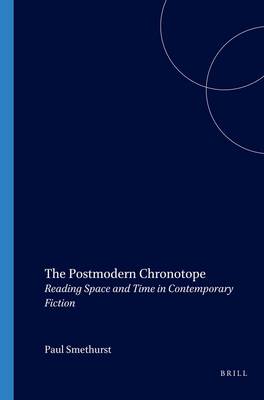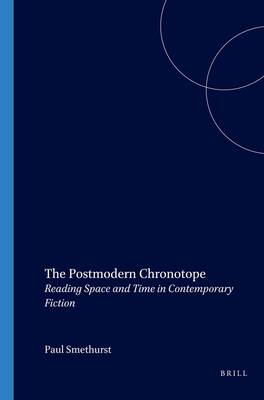
- Retrait gratuit dans votre magasin Club
- 7.000.000 titres dans notre catalogue
- Payer en toute sécurité
- Toujours un magasin près de chez vous
- Retrait gratuit dans votre magasin Club
- 7.000.0000 titres dans notre catalogue
- Payer en toute sécurité
- Toujours un magasin près de chez vous
167,95 €
+ 167 points
Description
The Postmodern Chronotope is an innovative interdisciplinary study of the contemporary. It will be of special interest to anyone interested in relations between postmodernism, geography and contemporary fiction. Some claim that postmodernism questions history and historical bases to culture; some say it is about loss of affect, loss of depth models, and superficiality; others claim it follows from the conditions of post-industrial society; and others cite commodification of place, Disneyfication, simulation and post-tourist spectacle as evidence that postmodernism is wedded to late capitalism. Whatever postmodernism is, or turns out to have been, it is bound up in rethinking and reworking space and time, and Paul Smethurst's intervention here is to introduce the postmodern chronotope as a term through which these spatial and temporal shifts might be apprehended. The postmodern chronotope constitutes a postmodern world-view and postmodern way of seeing. In a sense it is the natural successor to a modernist way of seeing defined through cubism, montage and relativity. The book is arranged as follows: - Part 1 is an interdisciplinary study casting a wide net across a range of cultural, social and scientific activity, from chaos theory to cinema, from architecture to performance art, from IT to tourism. - Part 2 offers original readings of a selection of postmodern novels, including Graham Swift's Waterland and Out of this World, Peter Ackroyd's Hawksmoor and First Light, Alasdair Gray's Lanark, J. M. Coetzee's Foe, Marina Warner's Indigo, Caryl Phillips' Cambridge, and Don DeLillo's The Names and Ratner's Star.
Spécifications
Parties prenantes
- Auteur(s) :
- Editeur:
Contenu
- Nombre de pages :
- 344
- Langue:
- Anglais
- Collection :
- Tome:
- n° 30
Caractéristiques
- EAN:
- 9789042015135
- Date de parution :
- 01-01-00
- Format:
- Livre broché
- Format numérique:
- Trade paperback (VS)
- Dimensions :
- 150 mm x 220 mm
- Poids :
- 571 g

Les avis
Nous publions uniquement les avis qui respectent les conditions requises. Consultez nos conditions pour les avis.






